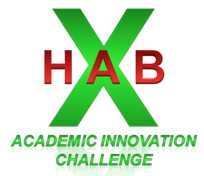 HUNTSVILLE, Ala. — The University of Alabama in Huntsville is one of five universities chosen to participate in the 2013 Exploration Habitat (X-Hab) Academic Innovation Challenge led by NASA and the National Space Grant Foundation.
HUNTSVILLE, Ala. — The University of Alabama in Huntsville is one of five universities chosen to participate in the 2013 Exploration Habitat (X-Hab) Academic Innovation Challenge led by NASA and the National Space Grant Foundation.
This group of universities will design habitat systems, concepts and technologies that could be used in future deep space habitats, according to NASA. UAH will design and develop a microgravity random access stowage and rack system as part of this challenge.
This selection is the first milestone in a year-long process for these five teams. Throughout the 2012-2013 academic year, the teams will meet a series of milestones to design, manufacture, assemble and test their systems in cooperation with the NASA Advanced Exploration Systems (AES) Program's Habitation Systems Project team.
"The X-Hab Academic Innovation Challenge is an exciting opportunity to engage university teams in the design process for NASA's next generation space systems," said Jason Crusan, NASA's AES program manager. "The agency benefits from the fresh and innovative perspective of these university teams, and they learn about deep space human exploration and the systems engineering approach from an experienced NASA team."
The challenge is a university-level participatory exploration effort designed to encourage studies in spaceflight-related disciplines. The challenge encourages multidisciplinary approaches, further outreach efforts and partnering with experts and industry.
“We’re pleased with NASA’s selection of our university for this program,” said Dr. Shankar Mahalingam, Dean of UAH’s College of Engineering. “Our students will appreciate the challenge to explore NASA's work on the development of deep space habitats, and it’s also a great honor that our students will have a hand in America’s space agency in gathering new ideas to complement its current research and development.”
NASA selected these five teams from among a group of proposals received in May 2012. Other teams chosen by NASA for the X-Hab Academic Innovation Challenge are:
· California State Polytechnic University: Vertical Habitability Layout and Fabrication Studies
· Oklahoma State University: Deep Space Habitat, Horizontal Habitability Layout Studies
· Texas A&M University: Wireless Smart Plug for DC Power
· University of Colorado at Boulder: Remote Plant Food Production Capability
The National Space Grant Foundation will fund design costs, development and delivery of the systems to the AES Habitat Systems team during the summer of 2013.
NASA's Human Exploration and Operations Mission Directorate's Advanced Exploration Systems Program, via the Habitat Systems Project team, is sponsoring the technology challenge. NASA is dedicated to supporting research that enables sustained and affordable human and robotic exploration. This educational challenge contributes to the agency's efforts to train and develop a highly skilled scientific, engineering and technical workforce for the future.
For information about competition registration and requirements, visit: http://www.spacegrant.org/xhab
